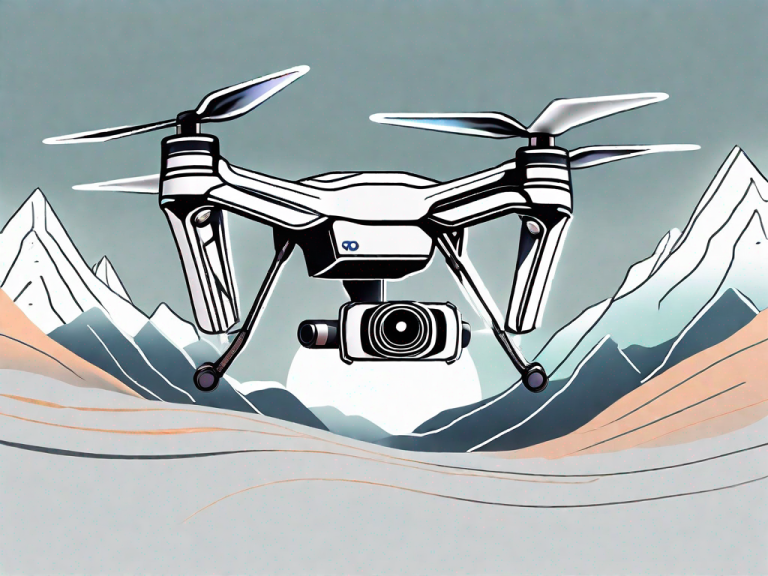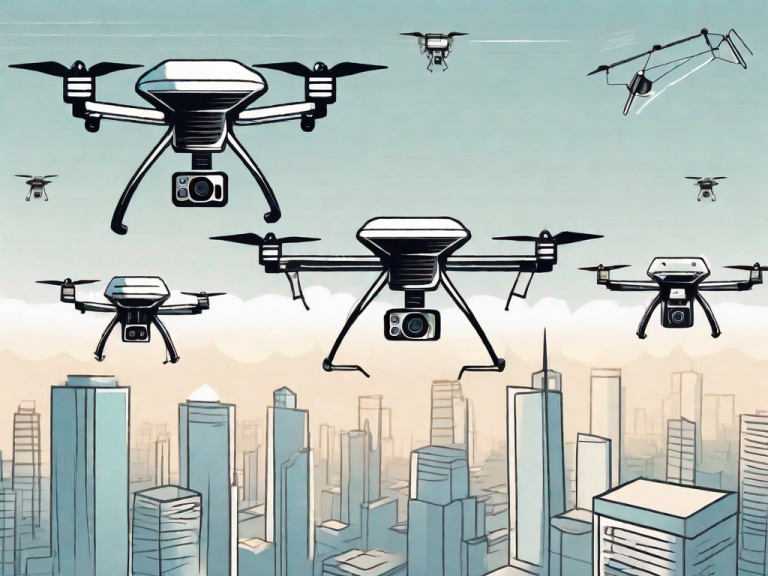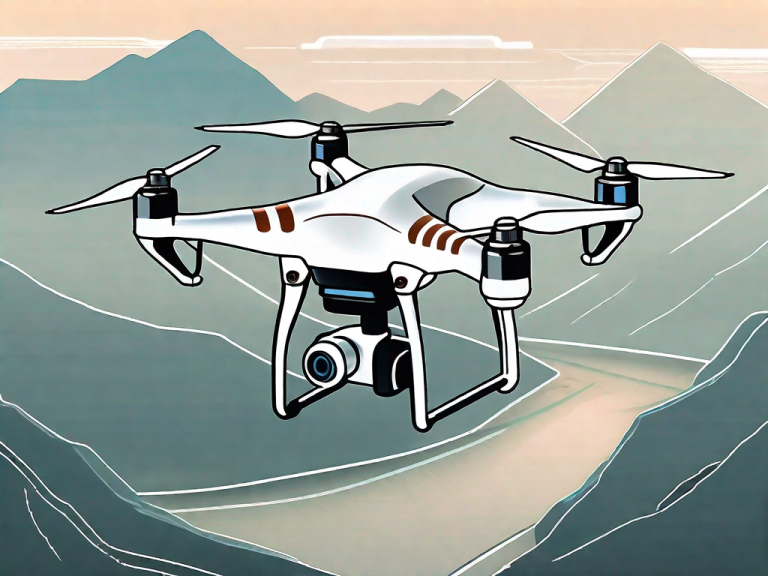In recent years, thermal drones have become a game-changer for hog hunting enthusiasts. These innovative devices offer a unique advantage when it comes to tracking and locating hogs in the wild. But what exactly are thermal drones, and how can they enhance your hog hunting experience? In this article, we will explore the world of thermal drones and discuss the key features to look for when selecting the best thermal drone for hog hunting. We will also review some of the top models available in the market and provide safety measures for using drones in hunting. Additionally, we will delve into the maintenance and care of your thermal drone and share tips to enhance your hog hunting experience with these remarkable devices.
Understanding Thermal Drones
Thermal drones, also known as thermal imaging drones, utilize advanced thermal imaging technology to capture and analyze heat signatures. These drones are equipped with thermal cameras that can detect and display temperature differences in the environment. By doing so, they allow hunters to spot hogs or other animals even in low-light conditions or dense foliage.
So, why is thermal imaging so valuable in hog hunting? The answer lies in the fact that hogs are predominantly active during the night and are known to take cover in thick vegetation during the day. This makes them challenging to detect using traditional hunting methods. However, thermal drones can give hunters a significant advantage by revealing the heat signatures emitted by these elusive creatures.
What Is a Thermal Drone?
A thermal drone is a remote-controlled aircraft with an integrated thermal camera. This camera is designed to capture images and videos using infrared radiation instead of visible light. The captured data is then processed to create a visual representation of the heat signatures in the surroundings.
The drone’s thermal camera can detect temperature differences as small as 0.1 degrees Celsius, allowing it to accurately pinpoint the location of hogs or other animals. The captured thermal images can be transmitted in real-time to a monitor or mobile device, providing hunters with immediate feedback and enabling them to make informed decisions during their hunting expeditions.
Thermal drones come in various sizes and designs, ranging from compact consumer models to larger professional-grade drones. The consumer models are typically lightweight and portable, making them easy to carry and operate in the field. On the other hand, professional-grade thermal drones often have longer flight times, higher payload capacities, and advanced features such as autonomous flight modes and obstacle avoidance systems.
Benefits of Using Thermal Drones for Hunting
Using thermal drones for hog hunting offers several benefits that significantly improve the hunting experience. Firstly, thermal imaging allows hunters to see in the dark, eliminating the need for expensive night vision equipment. This saves hunters both time and money, as they no longer have to limit their hunting activities to daylight hours.
Secondly, thermal drones enable hunters to cover larger areas in less time compared to traditional hunting methods. The aerial perspective provided by the drone allows hunters to survey vast stretches of land efficiently, identifying hog hotspots and potential hunting grounds without physically traversing the terrain.
Moreover, thermal drones can be equipped with GPS technology, enabling hunters to mark specific locations of interest during their flights. This feature is particularly useful for marking areas where hogs have been spotted or for mapping out hunting routes for future expeditions.
Lastly, thermal drones enhance safety during hog hunting, as hunters can identify potential hazards such as dense vegetation, sinkholes, or other dangerous elements without putting themselves at risk. By providing hunters with a comprehensive view of the hunting area, thermal drones help prevent accidents and ensure a safer hunting experience.
In addition to hog hunting, thermal drones have applications in various other fields, including search and rescue operations, wildlife monitoring, and infrastructure inspections. Their ability to detect heat signatures makes them valuable tools in locating missing persons, monitoring animal populations, and identifying energy inefficiencies in buildings.
As technology continues to advance, thermal drones are likely to become even more sophisticated and versatile. With improved image quality, longer flight times, and enhanced features, these drones will continue to revolutionize the way we approach hunting and other industries that rely on thermal imaging technology.
Key Features to Look for in a Thermal Drone
When selecting the best thermal drone for hog hunting, it is crucial to consider certain key features. These features can greatly influence the performance and usability of the drone, ensuring you get the most out of your hunting expeditions. Let’s take a look at some of the essential features to consider:
Camera Quality
The quality of the thermal camera is of paramount importance when choosing a thermal drone. Look for a drone that offers high-resolution thermal imaging and accurate temperature measurement capabilities. A drone with a high-quality camera will give you clear and detailed thermal images, making it easier to detect hogs or other game animals.
Furthermore, a thermal camera with advanced features such as adjustable focus, zoom capabilities, and image stabilization can greatly enhance your hunting experience. These features allow you to capture detailed images from a distance, enabling you to spot hogs even in challenging terrain or dense vegetation.
Flight Time and Range
Flight time and range refer to the duration the drone can remain airborne on a single battery charge and the maximum distance it can travel from the controller. Opt for a drone that offers a longer flight time and a greater range, as this will allow you to cover more ground during your hunting activities.
Moreover, consider drones that come with intelligent battery management systems, which can provide real-time battery status updates and automatically return the drone to the controller when the battery is low. This feature ensures that you never lose your drone due to unexpected power loss and allows you to plan your hunting sessions more effectively.
Durability and Weather Resistance
Hog hunting can be a demanding and rugged pursuit. Therefore, it is essential to choose a thermal drone that is built to withstand the harsh elements of the hunting environment. Look for drones that are made from durable materials and are designed to be weather resistant. This will ensure that your drone can withstand rough landings, rain, and even dust, allowing you to hunt with confidence in any conditions.
Additionally, some drones offer features like waterproofing, shock absorption, and reinforced frames, which provide extra protection against accidental crashes and impacts. These features not only increase the lifespan of your drone but also give you peace of mind while navigating through challenging terrains or adverse weather conditions.
Furthermore, consider drones that come with intelligent flight modes, such as obstacle avoidance and return-to-home functions. These features can prevent collisions with trees, buildings, or other obstacles, and ensure that your drone safely returns to you even if it loses connection or encounters an emergency situation.
Top Thermal Drones for Hog Hunting
Now that we have discussed the key features to consider, let’s take a closer look at some of the top thermal drones available for hog hunting:
Review of Drone 1
Drone 1 offers exceptional thermal imaging capabilities with its advanced camera. It boasts a high-resolution sensor that captures detailed heat signatures, providing hunters with clear images and videos. With an impressive flight time of up to 30 minutes and a range of 5 kilometers, Drone 1 allows hunters to cover vast areas with ease. Additionally, its rugged design ensures durability even in challenging hunting conditions.
Review of Drone 2
Drone 2 is a versatile thermal drone with a powerful thermal camera. Its camera offers excellent image quality, allowing hunters to identify hogs and track their movements accurately. With a flight time of 25 minutes and a range of 4 kilometers, Drone 2 provides hunters with ample time and distance to explore prospective hunting grounds. Its durable construction and weather resistance make it a reliable companion for hog hunting adventures.
Review of Drone 3
Drone 3 is a compact and lightweight thermal drone that delivers exceptional performance. Its thermal camera provides clear and detailed imagery, making it easy to spot hogs even from a distance. With a flight time of 20 minutes and a range of 3 kilometers, Drone 3 offers flexibility and maneuverability for hunters. Its sturdy build ensures durability, allowing it to withstand the rigors of hog hunting.
Safety Measures When Using Drones for Hunting
While thermal drones offer numerous advantages in hog hunting, it is crucial to prioritize safety during your hunting expeditions. Here are some safety measures to keep in mind:
Legal Considerations
Before incorporating drones into your hog hunting activities, familiarize yourself with the local regulations and laws regarding drone usage. Ensure that you adhere to all the necessary permits and restrictions imposed by the authorities.
Drone Handling Safety
Always operate your drone responsibly and within your skill level. Familiarize yourself with the drone’s control system and practice flying in open areas before venturing into hunting grounds. Never fly the drone near people or livestock and maintain a safe distance from power lines and other potential hazards.
Maintenance and Care for Your Thermal Drone
To ensure the longevity and optimal performance of your thermal drone, regular maintenance and care are essential. Here are some tips to keep your drone in top condition:
Regular Checks and Updates
Regularly inspect your drone for any signs of wear and tear. Check the propellers, battery, and camera connections for any damages or loose parts. Additionally, keep your drone’s software up to date to benefit from the latest features and improvements.
Cleaning and Storage
After each hunting session, clean your drone thoroughly to remove any dirt, dust, or debris. Use a soft brush or compressed air to clean the camera lens and carefully wipe the drone’s body with a damp cloth. When storing your drone, keep it in a cool and dry place away from direct sunlight and extreme temperatures.
Enhancing Your Hunting Experience with Thermal Drones
While thermal drones alone can greatly improve your hog hunting ventures, there are some additional tips and advanced features that can further enhance your experience:
Tips for Successful Hog Hunting with Drones
— Before your hunting expedition, study the hog’s behavior and identify their potential feeding and resting areas. This will help you plan your drone flights more effectively.– Fly your drone at different altitudes and angles to get a comprehensive view of the hunting ground. This will increase your chances of locating hogs and help you strategize your hunting approach.– Make use of the drone’s GPS capabilities to mark hog sightings or promising hunting spots. This will enable you to revisit these locations or share the coordinates with fellow hunters.
Advanced Drone Features for Hunting
Some thermal drones offer advanced features specifically designed for hunting purposes. These features may include automated tracking and locking onto heat signatures, multiple flight modes for precise maneuverability, and the ability to create heat maps of the hunting area. Exploring drones with these advanced features can take your hog hunting to the next level.
Frequently Asked Questions (FAQs)
- Q: Can thermal drones be used for other types of hunting?
- Q: Are thermal drones legal for hunting?
- Q: How far can thermal drones detect heat signatures?
- Q: Should I use a thermal drone in combination with other hunting methods?
- Q: How much do thermal drones for hunting cost?
- Q: Can thermal drones be used for scouting and wildlife conservation?
- Q: Are thermal drones difficult to operate?
A: Yes, thermal drones can be used for various types of hunting, including deer hunting and predator control.
A: The legality of thermal drones for hunting depends on the specific regulations of your area. It is important to familiarize yourself with the local laws and acquire any necessary permits before using a thermal drone for hunting.
A: The detection range of thermal drones depends on factors such as the camera’s sensitivity and the environment’s thermal contrast. In ideal conditions, thermal drones can detect heat signatures from several hundred meters to a few kilometers away.
A: It is often recommended to use a thermal drone in combination with other hunting methods, such as game cameras and traditional tracking techniques. This allows for a more comprehensive approach to hunting and increases the chances of a successful hunt.
A: The cost of thermal drones for hunting can vary depending on the brand, features, and capabilities. Generally, thermal drones designed for hunting range from a few hundred dollars to several thousand dollars.
A: Yes, thermal drones can be valuable tools for scouting and wildlife conservation efforts. Their ability to detect heat signatures helps identify animal populations, track migration patterns, and monitor endangered species.
A: While thermal drones may have a learning curve, modern drone technology has made them more user-friendly. With some practice and understanding of the drone’s controls, anyone can learn to operate a thermal drone effectively.
Table of Data
| Drone Model | Camera Resolution | Flight Time | Range |
|---|---|---|---|
| Drone 1 | High-resolution | Up to 30 minutes | 5 kilometers |
| Drone 2 | Excellent image quality | 25 minutes | 4 kilometers |
| Drone 3 | Clear and detailed imagery | 20 minutes | 3 kilometers |
Conclusion
Thermal drones have revolutionized hog hunting, offering hunters a unique advantage in tracking and locating hogs. With their ability to capture thermal images and detect heat signatures, these drones provide valuable insights into the hunting terrain, especially in low-light conditions. When selecting a thermal drone for hog hunting, consider the camera quality, flight time and range, and durability of the drone. Three top thermal drones for hog hunting include Drone 1, Drone 2, and Drone 3, each offering unique features and capabilities.
As with any hunting activity, safety should be a top priority. Familiarize yourself with the local regulations and handle your drone responsibly. Additionally, regular maintenance and care will ensure the longevity and optimal performance of your thermal drone. Finally, take advantage of advanced features and follow best practices to enhance your hunting experience with these remarkable devices.
Disclaimer: The information provided in this article is for educational purposes only and should not be considered as professional hunting advice. Always consult local regulations and seek guidance from experienced hunters before engaging in any hunting activities.









